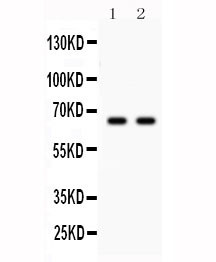Cookie preferences
This website uses cookies, which are necessary for the technical operation of the website and are always set. Other cookies, which increase the comfort when using this website, are used for direct advertising or to facilitate interaction with other websites and social networks, are only set with your consent.
Configuration
Technically required
These cookies are necessary for the basic functions of the shop.
"Allow all cookies" cookie
"Decline all cookies" cookie
CSRF token
Cookie preferences
Currency change
Customer-specific caching
FACT-Finder tracking
Individual prices
Selected shop
Session
Comfort functions
These cookies are used to make the shopping experience even more appealing, for example for the recognition of the visitor.
Note
Show the facebook fanpage in the right blod sidebar
Statistics & Tracking
Affiliate program
Conversion and usertracking via Google Tag Manager
Track device being used
| Item number | Size | Datasheet | Manual | SDS | Delivery time | Quantity | Price |
|---|---|---|---|---|---|---|---|
| NSJ-R31720 | 100 µg | - | - |
3 - 10 business days* |
772.00€
|
If you have any questions, please use our Contact Form.
You can also order by e-mail: info@biomol.com
Larger quantity required? Request bulk
You can also order by e-mail: info@biomol.com
Larger quantity required? Request bulk
0.5mg/ml if reconstituted with 0.2ml sterile DI water. Parkin is a RING domain-containing E3... more
Product information "Anti-Parkin"
0.5mg/ml if reconstituted with 0.2ml sterile DI water. Parkin is a RING domain-containing E3 ubiquitin ligase involved in proteasome-dependent degradation of proteins. It is mapped to 6q26. This gene is important for mitochondrial quality control by lysosome-dependent degradation of damaged mitochondria through autophagy, or mitophagy. Parkin is expressed in neuronal processes and cell bodies of neurons, but not glial cells, in the midbrain, basal ganglia, cerebral cortex, and cerebellum. Parkin assimilated with actin filaments, suggesting that it is a cytoskeletal-associated protein. Parkin is identified as a transcriptional repressor of p53 independent of its ubiquitin ligase function. It also has been found that parkin was associated physically with mitochondrial DNA (mtDNA) in proliferating as well as in differentiated SH-SY5Y neuroblastoma cells. Protein function: Functions within a multiprotein E3 ubiquitin ligase complex, catalyzing the covalent attachment of ubiquitin moieties onto substrate proteins, such as BCL2, SYT11, CCNE1, GPR37, RHOT1/MIRO1, MFN1, MFN2, STUB1, SNCAIP, SEPTIN5, TOMM20, USP30, ZNF746 and AIMP2 (PubMed:10973942, PubMed:10888878, PubMed:11431533, PubMed:12150907, PubMed:12628165, PubMed:16135753, PubMed:21376232, PubMed:23754282, PubMed:23620051, PubMed:24660806, PubMed:24751536, PubMed:29311685). Mediates monoubiquitination as well as 'Lys-6', 'Lys-11', 'Lys-48'- linked and 'Lys-63'-linked polyubiquitination of substrates depending on the context (PubMed:19229105, PubMed:20889974, PubMed:25621951). Participates in the removal and/or detoxification of abnormally folded or damaged protein by mediating 'Lys-63'-linked polyubiquitination of misfolded proteins such as PARK7: 'Lys-63'-linked polyubiquitinated misfolded proteins are then recognized by HDAC6, leading to their recruitment to aggresomes, followed by degradation (PubMed:17846173, PubMed:19229105). Mediates 'Lys-63'-linked polyubiquitination of a 22 kDa O-linked glycosylated isoform of SNCAIP, possibly playing a role in Lewy-body formation (PubMed:11590439, PubMed:11431533, PubMed:19229105, PubMed:11590439, PubMed:15728840). Mediates monoubiquitination of BCL2, thereby acting as a positive regulator of autophagy (PubMed:20889974). Promotes the autophagic degradation of dysfunctional depolarized mitochondria (mitophagy) by promoting the ubiquitination of mitochondrial proteins such as TOMM20, RHOT1/MIRO1 and USP30 (PubMed:19029340, PubMed:19966284, PubMed:23620051, PubMed:24896179, PubMed:25527291). Preferentially assembles 'Lys-6'-, 'Lys-11'- and 'Lys-63'-linked polyubiquitin chains following mitochondrial damage, leading to mitophagy (PubMed:25621951). Mediates 'Lys-48'-linked polyubiquitination of ZNF746, followed by degradation of ZNF746 by the proteasome, possibly playing a role in the regulation of neuron death (PubMed:21376232). Limits the production of reactive oxygen species (ROS). Regulates cyclin-E during neuronal apoptosis. In collaboration with CHPF isoform 2, may enhance cell viability and protect cells from oxidative stress (PubMed:22082830). Independently of its ubiquitin ligase activity, protects from apoptosis by the transcriptional repression of p53/TP53 (PubMed:19801972). May protect neurons against alpha synuclein toxicity, proteasomal dysfunction, GPR37 accumulation, and kainate-induced excitotoxicity (PubMed:11439185). May play a role in controlling neurotransmitter trafficking at the presynaptic terminal and in calcium-dependent exocytosis. May represent a tumor suppressor gene. [The UniProt Consortium]
| Keywords: | Anti-PARK2, Anti-Parkin, Anti-Parkinson disease protein 2, Anti-E3 ubiquitin-protein ligase parkin, Anti-Parkinson juvenile disease protein 2, Anti-Parkin RBR E3 ubiquitin-protein ligase, Parkin Antibody |
| Supplier: | NSJ Bioreagents |
| Supplier-Nr: | R31720 |
Properties
| Application: | WB, IHC (paraffin), ICC |
| Antibody Type: | Polyclonal |
| Conjugate: | No |
| Host: | Rabbit |
| Species reactivity: | human, mouse, rat |
| Immunogen: | Human partial recombinant protein (AA 23-416) |
| Format: | Purified |
Database Information
| KEGG ID : | K04556 | Matching products |
| UniProt ID : | O60260 | Matching products |
| Gene ID : | GeneID 5071 | Matching products |
Handling & Safety
| Storage: | +4°C |
| Shipping: | +4°C (International: +4°C) |
Caution
Our products are for laboratory research use only: Not for administration to humans!
Our products are for laboratory research use only: Not for administration to humans!
Information about the product reference will follow.
more
You will get a certificate here
Viewed













